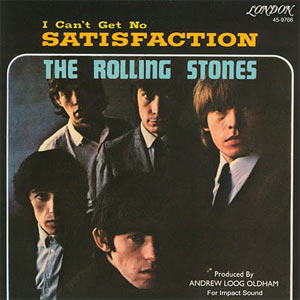
About the song
“(I Can’t Get No) Satisfaction” by The Rolling Stones is one of the most iconic songs in rock history. Released on June 6, 1965, this track became a defining anthem of the 1960s and remains a powerful statement in the world of music. Featured on the album “Out of Our Heads”, it encapsulates the rebellious spirit and youthful frustration of the era.
Video
Lyrics
I can’t get no satisfactionI can’t get no satisfaction‘Cause I try and I try and I try and I tryI can’t get no, I can’t get noWhen I’m drivin’ in my carAnd the man comes on the radioHe’s tellin’ me more and moreAbout some useless informationSupposed to drive my imaginationI can’t get no, oh no, no, noHey, hey, hey, that’s what I sayI can’t get no satisfactionI can’t get no satisfaction‘Cause I try and I try and I try and I tryI can’t get no, I can’t get noWhen I’m watchin’ my TVAnd a man comes on and tells meHow white my shirts can beBut he can’t be a man ’cause he doesn’t smokeThe same cigarettes as meI can’t get no, oh no, no, noHey, hey, hey, that’s what I sayI can’t get no satisfactionI can’t get no girl reaction‘Cause I try and I try and I try and I tryI can’t get no, I can’t get noWhen I’m ridin’ ’round the worldAnd I’m doin’ this and I’m signing thatAnd I’m tryin’ to make some girlWho tells me baby better come back, maybe next week‘Cause you see I’m on a losing streakI can’t get no, oh no, no, noHey, hey, hey, that’s what I sayI can’t get no, I can’t get noI can’t get no satisfaction, no satisfactionNo satisfaction, no satisfactionI can’t get no